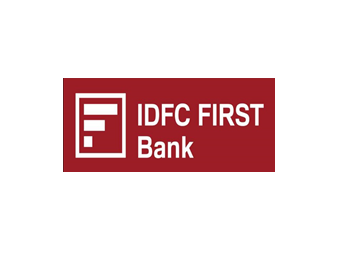Secure. Defend. Thrive.
Securing the future
with cyber resilience
Always-on threat
monitoring
Compliance-first
frameworks
Resilient business
continuity
Our Services
Where Security Meets Strategy.
And Resilience Begins.
Governance, Risk & Compliance (GRC)
Control Risk. Ensure Compliance.
Framework-driven governance and risk management strategies that strengthen regulatory alignment and enterprise resilience.
SOC Managed Services
Cloud & Data Security
Secure the Core of Digital Enterprise.
Comprehensive protection for cloud workloads and critical data, ensuring confidentiality, integrity, and availability.
CISO as Service
Strategic Security Leadership, On Demand.
Fractional CISO expertise that provides guidance, oversight, and execution for evolving security landscapes.
VAPT & Testing as a Service
Find Gaps. Fix Weaknesses. Fortify Systems.
Proactive vulnerability assessment and penetration testing to identify risks before adversaries can exploit them
Where Security Meets Strategy.
And Resilience Begins.
From compliance frameworks to real-time threat monitoring, Skillmine Cybersecurity Services deliver multilayered protection that enables trust, continuity, and growth in an increasingly hostile digital landscape.
Governance, Risk & Compliance (GRC)
Control Risk. Ensure Compliance.
Framework-driven governance and risk management strategies that strengthen regulatory alignment and enterprise resilience.
SOC Managed Services
Always-On Threat Defense.
Round-the-clock monitoring, detection, and response powered by advanced Security Operations Center expertise.
Cloud & Data Security
Secure the Core of Digital Enterprise.
Comprehensive protection for cloud workloads and critical data, ensuring confidentiality, integrity, and availability.
CISO as Service
Strategic Security Leadership, On Demand.
Fractional CISO expertise that provides guidance, oversight, and execution for evolving security landscapes.
VAPT & Testing as a Service
Find Gaps. Fix Weaknesses. Fortify Systems.
Proactive vulnerability assessment and penetration testing to identify risks before adversaries can exploit them
Protecting Digital Frontiers
Across Industries
BFSI
Retail
Public Sector
Healthcare
& Pharma
Manufacturing
Media &
Entertainment
Brains Behind the Breakthroughs
The Key to
Success - Secure

As businesses evolve with cloud, AI, and interconnected ecosystems, they expose themselves to a rapidly shifting threat landscape. Cybersecurity must be foundational and to reaction to catastrophe.
At Skillmine, we embed security into the very DNA of digital strategies right from architecture to execution ensuring every advancement is fortified by design.
Our mission is not just to defend, but to empower enterprises to lead boldly in a digital-first world.
Let’s redefine transformation securely, strategically, and at scale.

The Key to
Success - Secure
As businesses evolve with cloud, AI, and interconnected ecosystems, they expose themselves to a rapidly shifting threat landscape. Cybersecurity must be foundational and to reaction to catastrophe.
At Skillmine, we embed security into the very DNA of digital strategies right from architecture to execution ensuring every advancement is fortified by design.
Our mission is not just to defend, but to empower enterprises to lead boldly in a digital-first world.
Let’s redefine transformation securely, strategically, and at scale.
Testimonials

Skillmine is really a ‘Mine of Skills.’ The support we have been receiving from Skillmine for our requirements is excellent. They were able to provide the candidate with the right skill set to meet our demand. Very satisfied with Skillmine’s services.
Sony

Good sourcing ability is a factor we give importance to when choosing a service provider. Skillmine rightly fits the bill. Through speedy response, Skillmine has simplified business for us.
IDFC Bank

Over the past five years, our collaboration has been remarkable, encompassing 2,800+ stores, over 3,000 automated infrastructure provisioning, and handling monthly patching seamlessly.
We have also successfully completed more than 7 Lakh DevOps deployments with optimized automations & minimalistic approach. This team has proven to be the best we’ve worked with, consistently demonstrating exceptional flexibility and competence.
The handover process was flawless, with no lingering dependencies, due to the impeccable documentation and timely support provided.
The Skillmine team has continually exhibited outstanding skill and teamwork. This engagement has been both rewarding and successful.
TESCO

Thanks to the Skillmine Team’s dedication and expertise, within just 3-4 months, they swiftly identified and resolved a long-standing operational server-related issue, providing precise troubleshooting steps. This led to an incredible 82% boost in efficiency and resiliency for our server logs. Now our numbers align perfectly with our benchmarks.
ICICI Bank
FAQs
Strengthen Defense. Ensure Compliance.
Enable Continuity.
Strengthen Defense. Ensure Compliance.
Enable Continuity.
Unify threat intelligence, governance, and resilience into a secure framework that protects enterprises, ensures compliance, and empowers digital confidence.


